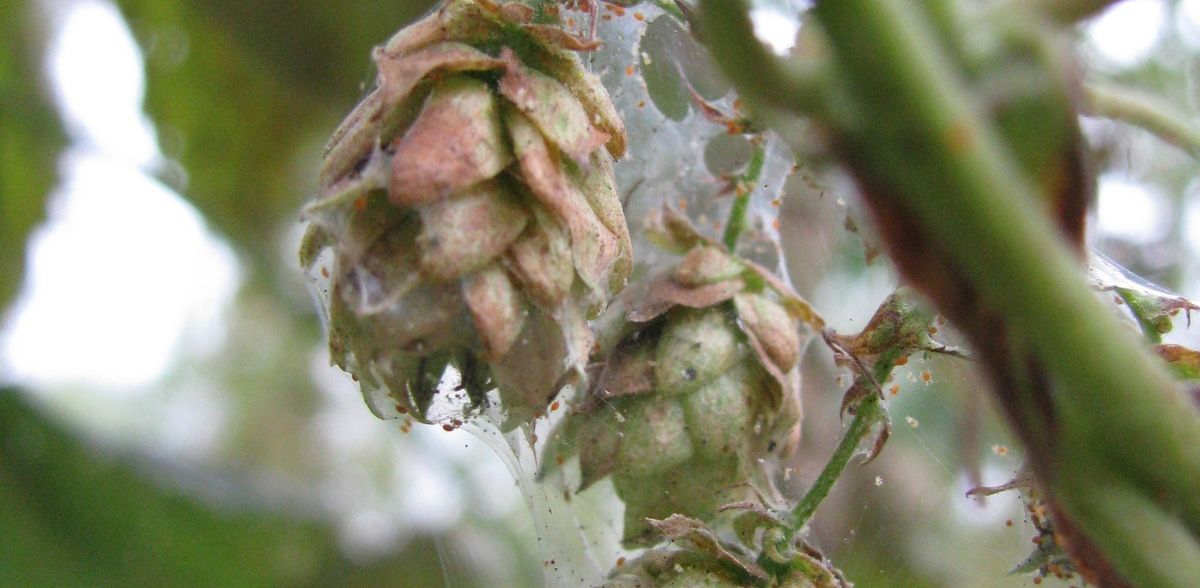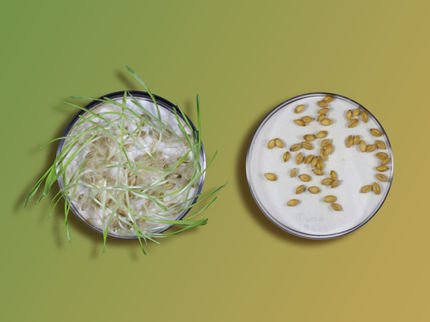From beer to medicine: How hops become more resistant to spider mites
DBU supports Bavarian research project
Advertisement
When the brewing industry celebrates "German Beer Day" on April 23rd, as it does every year, its main aim is to commemorate the medieval Bavarian state ordinance of 1516 - and thus the Purity Law. At that time, it was all about hops as well as barley and water. Germany is one of the world's two main producers of this crop, which is also the basis of medicines, for example. But danger lurks: the spider mite. The German Federal Environmental Foundation (DBU) is therefore funding a project of the Bavarian State Institute for agriculture (LfL) with around 450,000 euros. The aim is to strengthen the natural resistance of hops - and thus reduce the need for chemical pest control at the same time.
Nationwide hop harvest increased by around 13 percent
DBU Secretary-General Alexander Bonde emphasizes the importance of this dual approach: "This secures farmers' livelihoods, but at the same time ensures greater environmental protection." According to the Federal Statistical Office, German breweries produced around 7.2 billion liters of alcoholic beer in 2023. This is in addition to around 556 million liters of non-alcoholic beer. Among other things, the industry relies on one raw material for this: Hops. According to the Federal Ministry of Food and Agriculture, around 46,540 tons of hops were harvested nationwide in 2024, an increase of around 13% on the previous year.
Pesticides endanger biodiversity in Germany
However, cultivated hops, with Bavaria as the main growing region in Germany, are threatened by the common spider mite pest. According to the Bavarian State Institute for Agriculture, it causes considerable quality and harvest losses - up to total failure. To prevent this, chemical pest control is used, including acaricides, i.e. pesticides for the specific control of mites and ticks. But there is a catch, explains DBU department head Dr. Maximilian Hempel: "Pesticides make a decisive contribution to the decline in biodiversity. Ultimately, this also jeopardizes the existence of farms." But there are ways out, as a nationwide funding initiative for pesticide avoidance developed by the DBU has shown. Around three million euros in funding from the DBU went towards almost a dozen projects. Hempel: "The motivation is to strengthen the protection of biodiversity without jeopardizing the existence of farms."
Bavarian State Institute for Agriculture conducts research on 31 hop-growing areas
The LfL is therefore also looking for methods for sustainable plant protection. Project manager Dr. Florian Weihrauch reports on a remarkable finding: "Hop fields that were affected by significant damage from spider mites had little or no infestation in the following years - without the use of pesticides." In the DBU-funded project, the LfL examined 31 hop gardens over five years. One section of each was treated with acaricides every year, while a second section remained untreated. The aim is to find the reasons for the observed phenomenon and provide scientific evidence. The project will run until the end of May 2026. Weihrauch is already certain of one thing: "Annual hop treatment with acaricides is not necessary and is harmful to the environment. Our studies on the observation plots show that even with reduced pesticide use, there is no risk of crop failure in many years."
"Like a vaccination for humans"
Weihrauch is hoping for further research results from another finding: according to him, several factors in the hop plant change after a heavy infestation with spider mites. The project manager: "Among other things, it produces more so-called methyl-salicylic acid, which helps to make a new infestation much less likely. We want to investigate the reasons in more detail by the end of the project." For Weihrauch, one thing is certain: "Hops develop a natural resistance to spider mites. Although this also occurs in other plants such as cotton, soybeans or citrus fruits, such protection against a biting pest is rare." The LfL researchers therefore want to use this phenomenon for more ecological and environmentally friendly agriculture. "In simplified terms, you can think of it like a vaccination in humans," says Weihrauch.
Farmers and the environment benefit
If hop plants are naturally hardened against pests or at least fewer acaricides have to be used, this would have several positive effects according to Weihrauch: "Firstly, there would be considerable cost savings. This is because the use of chemicals costs an average of 300 to 400 euros per hectare and per application. Secondly, better environmental and nature conservation, because acaricides - once released into the environment - can harm flora and fauna." If natural protection prevented crop failures just as well as chemical pest control, everyone involved would benefit. Weihrauch: "The use of natural resistance to pests is an important step on the way to sustainable plant protection."
Note: This article has been translated using a computer system without human intervention. LUMITOS offers these automatic translations to present a wider range of current news. Since this article has been translated with automatic translation, it is possible that it contains errors in vocabulary, syntax or grammar. The original article in German can be found here.

































































